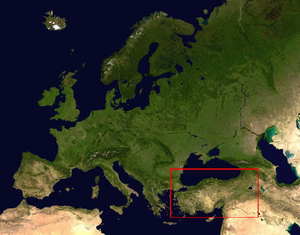If you are thinking about learning a new foreign language, Spanish should be at the top of your list. Why? Twenty of the very best reasons, divided into specific sections, which explain why Spanish should be your first choice in foreign language study are listed below.

Society, Communication and Travel
Social groups and structures are changing. With more people choosing to emigrate every year, the world’s face is rapidly changing. People travel more now than ever (for work and for pleasure) and more people are willing to live in other countries. This means that communication in foreign languages is even more important than ever. Being able to communicate in Spanish is particularly important for the following reasons:
1. Spanish is the mother tongue of approximately 350 million people in 21 countries, including Mexico: 95 million, Spain: 40 million, Argentina: 38 million, Colombia: 35 million. However, what is more interesting is that at the end of the 1800s, only 60 million people spoke Spanish. Today, almost 500 million people across the world speak Spanish.
2. Almost half of the population in the Western Hemisphere speaks Spanish. Spanish is just as important as English for the people who live in this sector of the world.
3. Spanish has always occupied an important place within US society, but over the past decade many people have begun to select Spanish as their preferred foreign language, after English, across the European continent too.
4. By learning Spanish fluently, you will be able to get by in Italian and French too, because of the similarities in grammar and vocabulary between the Romance languages.
5. Spanish is the second most used language, after English, which is used in many forms of international communication.
6. Spanish is also one of the six official languages used by the United Nations.
7. There are 28 different places in the world where Spanish is either the primary language or the largest secondary language. These places include: Andorra, Argentina, Belize, Bolivia, Chile, Colombia, Costa Rica, Cuba, Dominican Republic, Ecuador, El Salvador, Equatorial Guinea, France, Gibraltar, Guatemala, Honduras, Mexico, Morocco, Nicaragua, Panama, Paraguay, Peru, Philippines, Puerto Rico, Trinidad and Tobago, Uruguay, USA and Venezuela.
8. Approximately 5.8% of Internet users speak Spanish. This means that Spanish is the 4th most common language used online, coming in behind English, Japanese and German only.
Economy and Finance
A large part of our lives in the 21st revolves around the economy. Our finances and investments are important. Spanish is becoming an integral part of the global economy and many international partnerships and investments.
9. Spanish-speaking countries are experiencing lots of economic growth. This development is attracting a lot of interest from the English-speaking world in terms of finance and investment.
10. The creation of the MERCOSUR and other free trade agreements between South American countries and North America (ALADI, the Andean Community, CACM, NAFTA, G3) help to support and strengthen the respective economies of these countries,. This support helps to make Spanish-speaking economies more efficient and more competitive on a global scale.
11. Analyzing Inter-European trade, British, French and German companies have explained that the main barriers to international trade occur when there are language barriers that cannot be overcome. By investing in Spanish language learning, the developing economies in the Spanish-speaking world become potential investment and business opportunities.
Education, Business and Career Opportunities
Opportunities for working at home, working as a travelling entrepreneur with nothing but a laptop in tow, are growing rapidly. The face of employment is changing at an amazing speed. For this reason…
12. Over the past ten years, the demand for Spanish Language courses worldwide has risen by almost 50%
13. In both the US and Canada, Spanish is the most popular foreign language to learn.
14. Thanks to these developments, the demand for the media (radio, television, newspaper, magazines) to be in Spanish has notably increased.
15. Work opportunities abroad in Spanish speaking countries are limitless (as too are volunteer projects and internships).
16. Taking your business to a Spanish-speaking audience is easily done via the Internet from the comfort and familiar surroundings of your home country.
Fun Facts about Spanish in the US
There are even more reasons for learning Spanish if you live in the US than anywhere else because of the high immigration figures from Latin American countries and the opportunities for trade that geographical proximity provides.
17. The Hispanic population in the United States has grown by 60% in just one decade and can boast the fifth largest Hispanic population worldwide, with three out of four people who say that Spanish is their primary language.
18. 28 million in the US people speak at least a little Spanish.
19. By 2050, the number of Hispanics in the US is projected to grow to over 100 million people, which will form about one quarter of the total U.S. population.
20. In the New York City area, the Spanish-language Noticias 41 and Noticiero Univision, normally report higher ratings than new programs on CBS, NBC and ABC.













